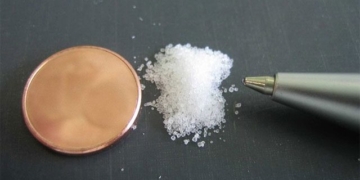Hot weather and rising temperatures are making many people uncomfortable, especially this group.
Ms. Ha Mai, 50 years old (Thanh Xuan District, Hanoi), is currently an elementary school teacher. As summer arrives, she feels her body temperature rising more than usual. Sometimes while cooking or cleaning, sudden “hot flashes” hit her, causing discomfort and irritability towards her family.
“Hot flashes” are a common phenomenon among women going through perimenopause or menopause. Dr. Phan Chi Thanh, Director of the Training and Guidance Center at the National Obstetrics and Gynecology Hospital, notes that in the summer, hot weather increases the risk of hot flashes for women in perimenopause and menopause. Many have visited Dr. Thanh’s clinic seeking relief from this condition.

“Hot flashes” are a common phenomenon among women in perimenopause or menopause.
According to Dr. Thanh, the reasons for an increase in hot flashes are due to several factors:
Spicy foods are a common trigger for hot flashes. Keep this in mind if you plan to buy or prepare fried dishes with lots of chili, pepper, or other spicy ingredients. If you prefer rich flavors, look for dishes with herbs, greens, or other ingredients that enhance the taste.
Hot drinks, caffeinated beverages, and alcoholic drinks can also trigger hot flashes. Consider switching from coffee and tea to caffeine-free herbal tea. Women should increase their intake of fruit juices to help cool the body.
Methods to cool down
Women should exercise for about an hour, at least three times a week, to feel more comfortable.
Physical activity helps reduce stress—a common cause of hot flashes. While you might experience hot flashes during exercise, feeling hot and sweating in the gym is completely normal.
This may seem simple but is extremely important in preventing hot flashes. Our goal is to keep the body temperature below the sweating threshold, which can trigger hot flashes. You can stay in air-conditioned areas or open windows and use fans to circulate cool air.
For those who have been long-term passive smokers, they are more likely to experience moderate to severe hot flashes. The more exposure to smoke, the hotter the body becomes.
“In one study, women who smoked more than one pack a day faced a 2.5 times greater risk of experiencing severe hot flashes compared to women who never smoked. This is also true if you are a passive smoker due to your partner,” says Dr. Thanh.
By staying away from tobacco, women can reduce hot flashes as well as the risk of serious health issues such as heart disease, stroke, and cancer. If you need help quitting smoking, talk to your doctor for guidance.
Finding ways to reduce stress and enhance a sense of peace in life can help alleviate hot flashes. Try meditation, yoga, massage, or any activities that can help you relieve stress. Even if these measures do not eliminate hot flashes, they can provide other benefits, including improved sleep.
“If hot flashes occur 2-3 times a day, you should see a doctor immediately. This could be a sign of serious health issues like cancer, stroke, etc.,” warns Dr. Thanh.




















































